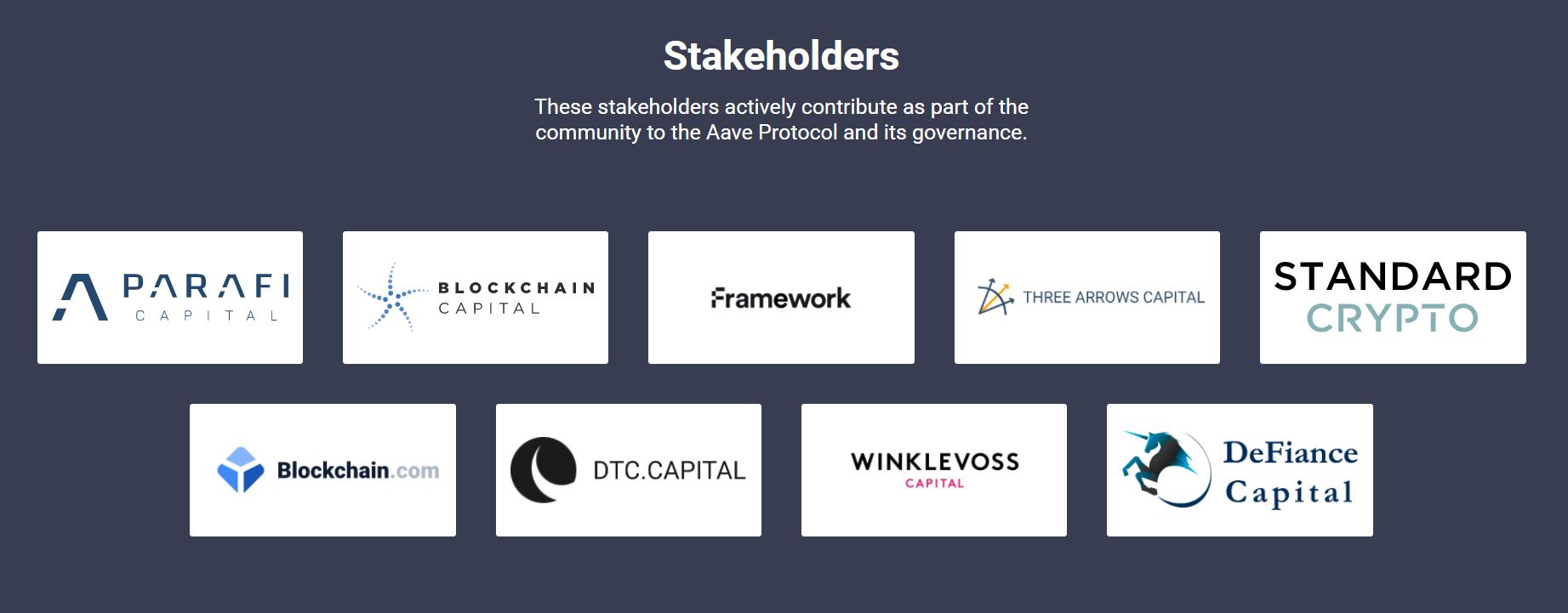
Aave Exchange

Börsen-Gebühren
Einzahlungsmethoden
Unterstützte Krypto-Währungen (24)
Aave Review
What is Aave Exchange?
Aave is a decentralized lending platform operating on a non-custodial liquidity market protocol. Borrowers can benefit from the liquidity either by way of over-collateralization (i.e. perpetual) or through under-collateralization (one-block liquidity). It is an open-source protocol that allows users to create new interactive and supported Dapps. Aave protocols are audited, secure, and is capable of interact with smart contracts on the Ethereum network.
(IMAGE DATE: 29 June 2021)
General Information on DEXs
DEXs are becoming increasingly more popular, mostly due to the following factors:
- They do not require a third party to store your funds, instead, you are always directly in control of your coins and you transact directly with whoever wants to buy or sell your coins.
- They normally do not require you to give out personal info. This makes it possible to create an account and right away be able to start trading.
- Their servers spread out across the globe leading to a lower risk of server downtime.
- They are essentially immune to hacker attacks.
However, DEXs normally have an order book with lower liquidity than their centralized counterparts.
Aave Compatible Wallets
In order to use Aave, you need to have one of the following wallets. The platform is only possible to use if you connect your wallet to the platform.
Etherum Mainnet
Polygon Mainnet
Aave Liquidity
Aave protocols can support Flash Loans. However, this feature is designed keeping the developers in mind. Through Flash Loans, one can borrow funds without pledging any collateral as long as the pool is replenished within a single block transaction. Executing a flash loan will require creating a new contract that requests a flash loan (hence only for developers). This contract has to be built in such a way that all the steps outlined by the Aave protocol are complied with and the loan is repaid with interest in the same transaction.
(IMAGE DATE: 29 June 2021)
US-investors
Why do so many exchanges prohibit US citizens from opening accounts on their portal? The answer has only three letters. S, E and C (the Securities Exchange Commission). The reason the SEC is so scary is because the US does not allow foreign companies to solicit US investors unless those foreign companies are also registered in the US (with the SEC). If foreign companies solicit US investors anyway, the SEC can sue them. There are many examples of when the SEC has sued crypto exchanges, one of which being when they sued EtherDelta for operating an unregistered exchange. Another example was when they sued Bitfinex and claimed that the stablecoin Tether (USDT) was misleading investors. It is very likely that more cases will follow.
Decentralized exchanges are different beings than the abovementioned examples. They never have custody of any user assets. They normally don't accept any fiat currency. As such, they are less scary for regulating authorities and the same reasons to prohibit citizens from certain countries to use them can't be applied. Accordingly, we have marked Aave as "allowing US-investors" in our database.
Aave Trading View
Every trading platform has a trading view. The trading view is the part of the exchange’s website where you can see the price chart of a certain cryptocurrency and what its current price is. There are normally also buy and sell boxes, where you can place orders for the relevant crypto, and, at most platforms, you will also be able to see the order history (i.e., previous transactions involving the relevant crypto). Everything in the same view on your desktop. There are of course also variations to what we have now described. This is the trading interface at Aave (without connecting the wallet though):
It is up to you – and only you – to decide if the above trading view is suitable for you. Finally, there are usually many different ways in which you can change the settings to tailor the trading view after your very own preferences.
Aave Fees
Aave Trading fees
When it comes to centralized exchanges, many of them charge what we call taker fees, from the takers, and what we call maker fees, from the makers. Takers are the people removing liquidity from the order book by accepting already placed orders, and makers are the ones placing those orders. The main alternative to this is to simply charge “flat” fees. Flat fees mean that the exchange charges the taker and the maker the same fee.
When it comes to decentralized exchanges, many of them don't charge any trading fees at all. This is in all probability one of the biggest arguments that DEX-supporters use to explain why centralized exchanges are on their way out.
Aave is not one of the "no fee" exchanges, but charge 0.09% to flash loan takers. They call this a liquidity fee of each trade, paid to the liquidity provider as a protocol incentive. These fees are subjected to change by community governance.
Regardless of whether you compare to DEXs or centralized exchanges, these fees are below the industry average.
Aave Withdrawal fees
To our understanding, Aave does - like most decentralized exchanges - not charge any transfer fees or withdrawal fees other than the network fees. The network fees are fees paid to the miners of the relevant crypto/blockchain and not the fees paid to the exchange itself. Network fees vary from day to day depending on the network pressure.
Generally speaking, to only have to pay the network fees should be considered as below the global industry average when it comes to fee levels for crypto withdrawals (if you include all exchanges, both DEXs and CEXs in the data set).
Deposit Methods
Aave does not – like all (or at least close to all) other DEXs – accept any deposits of fiat currency. This means that crypto investors without any previous crypto holdings can’t trade at this trading platform. If you want to purchase your first cryptos, you will need a so-called entry-level exchange i.e., an exchange accepting deposits of fiat currency. Find one by using our Exchange Filters!
Aave Security
The servers of DEXs normally spread out across the globe. This is different from centralized exchanges that normally have their servers more concentrated. This spread-out of servers leads to a lower risk of server downtime and also means that DEXs are virtually immune to attacks. This is because if you take out one of the servers, it has little to no impact on the full network. However, if you manage to get into a server at a centralized exchange, you can do a lot more harm.
Also, if you make a trade at a DEX, the exchange itself never touches your assets. Accordingly, even if a hacker would somehow be able to hack the exchange (in spite of the above), the hacker can not access your assets. If you make a trade at a centralized exchange, however, you normally hold assets at that exchange. That is until you withdraw them to your private wallet. A centralized exchange can therefore be hacked and your funds held at such exchange can be stolen. This is not the case when it comes to decentralized exchanges, like Aave.
Reviews
Log in to post a reivew
No reviews yet
Be the first to share your thoughts!







